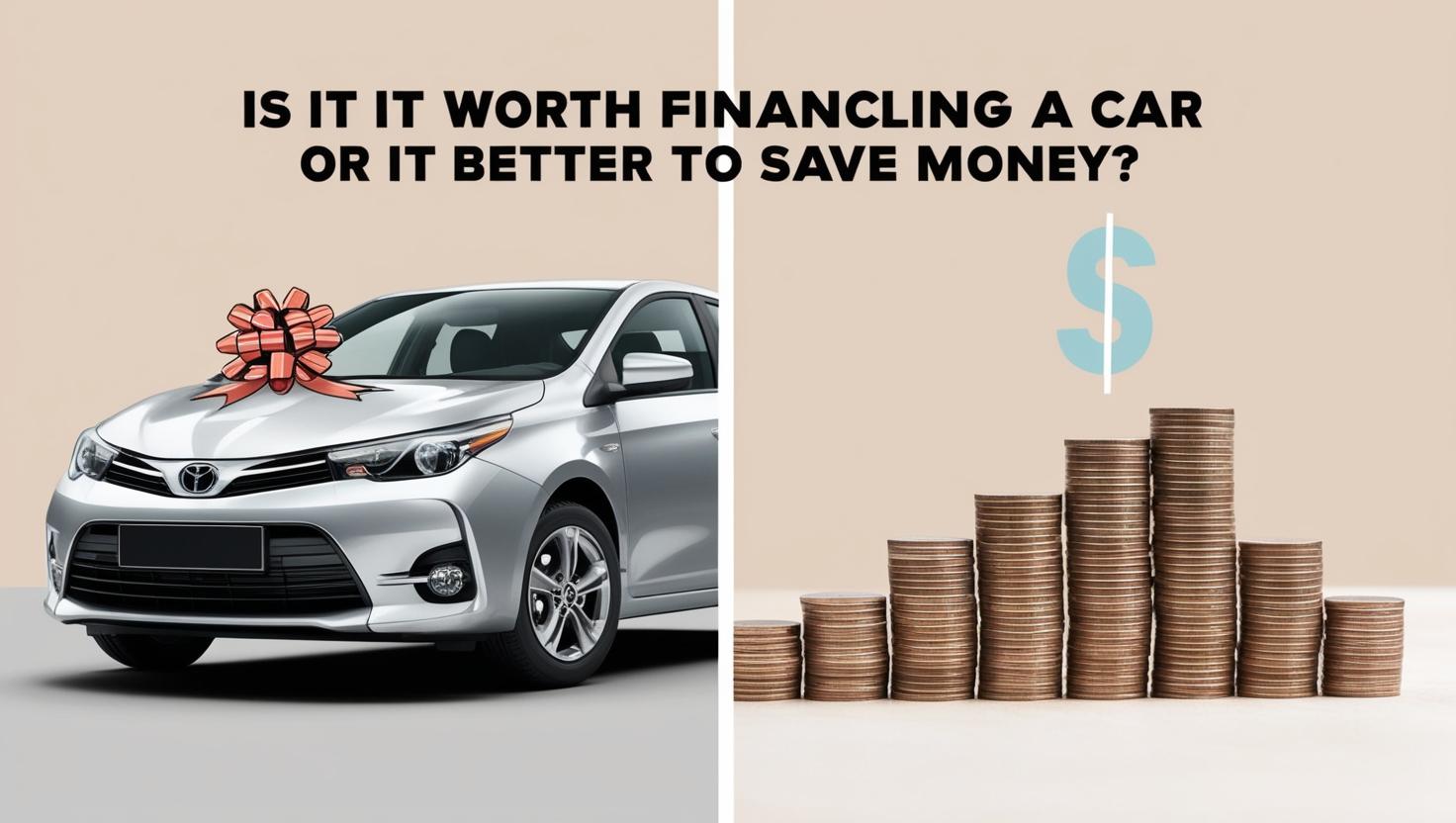Buying a car is a significant financial decision, and one of the biggest questions people face is whether to finance a vehicle or save money and buy it in cash. Both options have advantages and drawbacks, depending on your financial situation, goals, and priorities.
In this article, we’ll explore the pros and cons of financing a car versus saving up to buy one outright, helping you make the best choice for your needs.
1. Understanding Car Financing
Car financing means taking out a loan to purchase a vehicle and paying it back over time, typically with interest. Most people finance their cars because they don’t have enough savings to buy one outright.
Common Financing Options:
- Bank loans
- Dealership financing
- Leasing (although not technically a purchase)
While financing allows you to drive a car immediately, it comes with extra costs due to interest rates and fees.
Pros of Financing a Car
✅ Immediate Ownership – You get to drive the car right away without waiting to save up.
✅ Builds Credit History – Making on-time payments can improve your credit score.
✅ Preserves Savings – You don’t have to drain your savings account to make a purchase.
✅ Access to Newer Cars – Financing allows you to afford a more reliable, newer model.
Cons of Financing a Car
❌ Interest Costs – You end up paying more than the car’s actual price.
❌ Monthly Payments – A portion of your income will go toward the loan, reducing financial flexibility.
❌ Depreciation – Cars lose value quickly, and you might owe more than the car is worth.
❌ Hidden Fees – Loan processing fees, insurance requirements, and penalties can add up.
2. Saving Money to Buy a Car in Cash
The alternative to financing is to save money over time and purchase a car without taking on debt.
Pros of Buying a Car in Cash
✅ No Interest Payments – You only pay the car’s actual price, saving money in the long run.
✅ No Monthly Debt – You won’t have a car loan affecting your budget.
✅ More Negotiation Power – Cash buyers can sometimes get better deals.
✅ Lower Overall Costs – No loan fees, credit checks, or financing charges.
Cons of Buying a Car in Cash
❌ Takes Time to Save – You may have to wait longer to get a car.
❌ Limits Your Options – Your budget might only allow for an older or used car.
❌ Ties Up Savings – Using all your savings for a car can leave you financially vulnerable.
3. Key Factors to Consider
1. Urgency – Do You Need a Car Now?
- If you urgently need a car for work or family, financing might be the only option.
- If you can wait and save, buying in cash is often a smarter financial decision.
2. Interest Rates – Is the Financing Deal Fair?
- Low-interest loans (below 3%) might make financing more attractive.
- High-interest loans can significantly increase the total cost of the vehicle.
3. Depreciation – Will the Car Lose Value Quickly?
- New cars lose about 20-30% of their value in the first year.
- If financing a car, you might end up owing more than it’s worth (negative equity).
4. Monthly Budget – Can You Afford the Payments?
- Financial experts recommend that car payments should not exceed 15% of your monthly income.
- If a loan strains your budget, saving up is a better approach.
5. Long-Term Financial Goals – Does It Fit Your Plan?
- If you plan to invest or buy a house soon, avoiding debt might be the best choice.
- If having a reliable car improves your career opportunities, financing could be justified.
4. The Best Approach: A Hybrid Strategy
Instead of choosing between full financing or full cash purchase, consider a hybrid approach:
Step 1: Save at least 30-50% of the car’s price before buying.
Step 2: Finance the rest with a short-term, low-interest loan.
Step 3: Pay off the loan as quickly as possible to minimize interest.
This method reduces the total cost while keeping some financial flexibility.
5. Final Verdict: Which Option Is Better?
| Factor | Financing a Car | Buying in Cash |
| Cost Over Time | More expensive due to interest | Cheaper, no extra costs |
| Monthly Budget | Requires fixed payments | No financial obligations |
| Car Choice | Access to newer models | Limited to what you saved |
| Financial Impact | Can affect credit and future loans | No debt, better financial freedom |
Who Should Finance a Car?
✔️ People who need a car immediately
✔️ Those who can secure a low-interest rate
✔️ Buyers who want a newer, more reliable vehicle
✔️ Individuals with stable income and good budgeting skills
Who Should Save and Pay in Cash?
✔️ Those who can wait and save over time
✔️ People who want to avoid debt and interest payments
✔️ Buyers looking for the most cost-effective option
✔️ Individuals who don’t want monthly financial commitments
Final Thoughts
Both financing and saving have their advantages and disadvantages. If you can afford to wait and save, buying in cash is often the best financial decision. However, if you need a car now and can get a good financing deal, it can be a reasonable option—especially if you choose a short loan term with low interest.
Before making a decision, evaluate your financial situation, compare offers, and choose the option that best aligns with your long-term financial goals.

